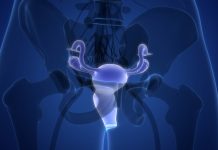Researchers suggest that microwave ablation, a minimally invasive procedure, could offer comparable progression-free survival rates to surgery with fewer complications
The study published in Radiology, a journal of the Radiological Society of North America (RSNA), reveals a significant shift in the treatment landscape for papillary thyroid carcinoma (PTC), the most prevalent form of thyroid cancer.
New treatment for PTC
PTC often displays itself as multifocal, meaning multiple nodules are detected within the thyroid gland. Surgical resection, the conventional treatment for multifocal PTC, involves removing part or all of the thyroid.
However, this approach has disadvantages; it can lead to scarring, lifelong hormone replacement therapy, and potential complications such as permanent hoarseness or impaired thyroid function.
Led by senior author Ming-An Yu, M.D., director of interventional medicine at China-Japan Friendship Hospital in Beijing, China, the study analysed data from 775 patients with ultrasound-detected multifocal Stage I PTC treated with either microwave ablation or surgery across ten centres between May 2015 and December 2021.
The findings challenge traditional treatment by suggesting microwave ablation as a viable alternative. “This study marks the first multicenter comparative analysis between microwave ablation and surgical resection for multifocal papillary thyroid cancer,” Dr. Yu stated.
“These findings challenge traditional treatment paradigms and open new avenues for less invasive management strategies.”
Microwave ablation success
Propensity score matching was employed to ensure a fair comparison between the two groups. After matching, 229 patients underwent microwave ablation, while 453 underwent surgical resection.
Over a median of 20 to 26 months, the results revealed that microwave ablation offered similar progression-free survival rates to surgery (5-year: 77.2% vs 83.1%) but with fewer complications and greater potential for preserving thyroid function.
Microwave ablation was associated with less blood loss, shorter incision length, and shorter procedure and hospitalisation durations. Complications such as permanent hoarseness (2.2%) and hypoparathyroidism (4.0%) were encountered only in the surgical resection group.
Dr. Yu emphasised that microwave ablation does not routinely include preventative ablation of lymph nodes, a common practice in surgical resection. However, the study’s results suggest that microwave ablation can generate comparable survival rates even without lymph node ablation.
“Our study has shown that microwave ablation offers a promising treatment option for multifocal papillary thyroid cancer,” Dr. Yu concluded. “Additionally, microwave ablation is associated with fewer complications and can preserve thyroid function, thereby enhancing patients’ quality of life. This represents a significant advancement in the field of interventional thyroid cancer treatment.”











